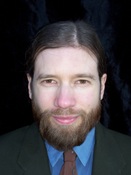Amateurs and pros seek common ground in open source


But as more professional organizations become involved splits develop. I got a good taste of it this week after writing about Debian.
C.J. Fearnley of Linuxforce.Net (right) didn't like the headline and wanted to talk. There ensued a rambling, 20-minute monologue during which I learned that, indeed, Ubuntu has become a better desktop Linux alternative than Debian, and it was mainly the headline that was objected to.
I apologized, but then learned more about what really prompted the call.
There are pros who seek to develop open source, pros who seek to exploit open source, and amateurs who, like Fearnley, each have their own agenda.
Amateurs dominate at Debian. "Flame wars may chase some corporations away" from it, he admitted. But those who remain find "Debian is a new cultural phenomenom. It's an international engineering group, with no cabal."
For cabal you might also read management, or central direction. Groups like Debian don't like it. Professional organizations find it a necessity.
How can we define this in a way that's fair to both sides? When an amateur heads down a direction the market doesn't value, then like an artist they continue down their path. When a pro finds a direction the market doesn't value, they do something else. And neither side can comprehend the priorities of the other.
Open source needs both amateurs and pros to thrive. But can they ever find common ground?